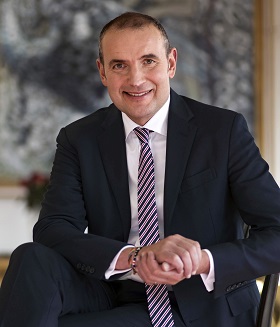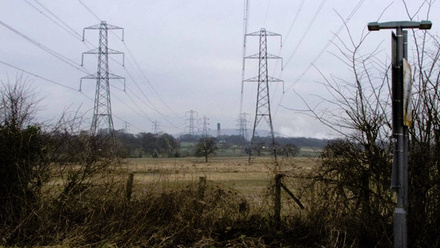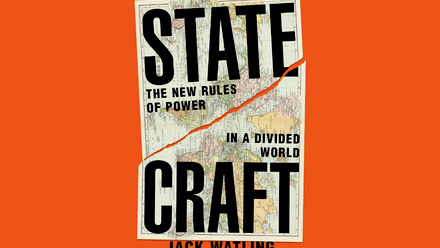Join us for a half-day event, in association with the Embassy of Iceland, exploring the history and strategic relevance of Iceland and the Arctic to geopolitics today.
Due to its strategic location in the High North, Iceland played an important role in both the Second World War and Cold War. British forces occupied Iceland on 10 May 1940, on the day Winston Churchill became wartime Prime Minister. They were mostly replaced by United States forces in 1941, following agreement between Reykjavík and Washington.
US forces were subsequently stationed in Iceland through the Cold War, as the country was a prime geographical location for surveillance of the Soviet Fleet in the North Atlantic. Following Russia‘s invasion of Ukraine in February 2022, as well as changing circumstances in the region due to climate change, security in the High North has once again regained prominence.
Sessions throughout the morning will include an opening address by His Excellency Guðni Th. Jóhannesson, President of Iceland. The President will be joined by a range of speakers with international military, political, and diplomatic expertise. The speakers will consider the geostrategic importance of Iceland and the Arctic during the Second World War and Cold War, and its relevance today.
About the Keynote Speaker
Gudni Th. Johannesson President of Iceland

The President of Iceland is the country’s head of state and the only representative chosen by the entire electorate in a direct election. The office of president was established in the Constitution of the Republic of Iceland which took effect on 17 June 1944.
Guðni Th. Jóhannesson is the 6th president of the Republic of Iceland. He was inaugurated on 1 August 2016 and re-elected for another four-year term on 28 June 2020.
President Jóhannesson was born on 26 June, 1968 in Reykjavik. He graduated from Warwick University in England as a Bachelor of Arts in History and Political Science in 1991. In 1997 he graduated with an M.A. degree in History from the University of Iceland. He then moved back to England where he continued his studies of history at Oxford University, graduating with an M.St. degree in 1999 and finally completing his Ph.D. in History from Queen Mary University of London in 2003.
President Jóhannesson is married to Eliza Jean Reid, whom he met while they were both studying at Oxford University. Canadian by birth, Eliza studied modern history at Oxford University and international relations at Trinity College, University of Toronto. Guðni and Eliza have been living in Iceland since 2003. Their children are Duncan Tindur (b. 2007), Donald Gunnar (b. 2009), Sæþór Peter (b. 2011) and Edda Margrét (b. 2013). Jóhannesson´s eldest child is Rut (b. 1994), from his previous marriage to Elín Haraldsdóttir.
Before taking office as president in 2016, Jóhannesson was Professor of History at the University of Iceland. He had previously taught at the University of Iceland, Reykjavik University, Bifröst University and at the University of London. As an academic, his focus of research has been on the formation of Iceland´s foreign relations, constitutional matters, and contemporary history. His publications include numerous scholarly articles on topics such as the Anglo-Icelandic Cod Wars, Iceland´s support for Baltic independence, and the 2008 economic crisis in Iceland. In addition, he has written several books on modern Icelandic history, including a book on the Icelandic presidency which was published shortly after he took office himself in 2016. He has received a variety of recognitions for his works, and in 2017 he was awarded an honorary degree by Queen Mary University.
President Jóhannesson is an active sport enthusiast and an advocate for public health. He is patron to the National Olympic and Sports Association of Iceland and the Icelandic Youth Association, among others.
Agenda
Sessions
Seminar Moderated by: Brigadier Allan Mallinson, Author and former British Army Officer
09:00 Registration
09:30 Welcoming and Introductory Remarks
Dr Karin von Hippel, Director-General, RUSI
His Excellency Sturla Sigurjónsson, Ambassador of Iceland to the UK
09:40 Opening Address
His Excellency Guðni Th. Jóhannesson, President of Iceland
09:50 The Strategic Situation Following the German Occupation of Denmark and Norway in 1940
Professor David Reynolds, Emeritus Professor of International History, University of Cambridge
10:10 Iceland in Hot and Cold War
Friðþór Eydal, Researcher and Writer on Allied Military Activities in Iceland
10:40 Coffee Break
11:00 Military Capabilities in the High North
Commodore David Filtness Royal Navy, Deputy Commander (Operations), UK Maritime Operations Centre, Ministry of Defence
11:20 Current Strategic Prospects in the High North
Björn Bjarnason, former Icelandic Cabinet Minister
11:45 A UK Perspective on the High North
Professor Julie Smith (Baroness Smith of Newnham), Professor of European Politics and International Studies, University of Cambridge
12:00 A NATO Perspective on the High North
Air Chief Marshal Lord Peach of Grantham, Distinguished Fellow, RUSI
12:20 Questions and Panel Discussion
13.00 Sandwich Lunch
14.00 Close
How to Attend
This seminar is free of charge and open exclusively to all RUSI members. Please note that places are limited and will be allocated on a first come, first served basis. If you have any questions regarding this event, please email Sabrina Downey, Events Director, at [email protected].



